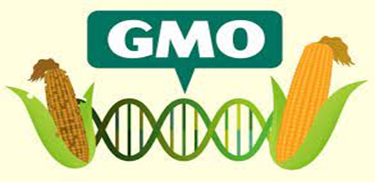Written by Aleena McDaniel
GMO’s. What are they?
GMO’s are Genetically Modified Organisms. They have been created through biotechnology, which is where scientists manipulate the genetic makeup of crops and livestock in order for them to tend to our needs. Scientists use genetic engineering to take the genetic makeup from one organism and put it into another organism, so we can use it increase the amount of crops we produce, harvest them faster, and grow them larger. The genetically modified organisms (GMO’s) are what farmers have been using on our crops for years now. It is the only way they are able to plant and harvest enough of their crops because the demand for them is so high. As a society, and as our population grows, we have become reliant on GMOs in order to make enough food for us.

How do they affect our crops?
The crops that are most affected by GMOs are soybeans, corn, canola, tomatoes, and potatoes. They are most affected because these are the crops that are high in demand. GMOs affect these crops because it changes their genetic makeup. Changing the genetic makeup of an organism means the way in which the crops are cared for must change. GMO crops can be toxic to the bugs and animals that feed off it. The crops could also change the natural ecology of the plants and the areas around it as well. There is a possibility that the genes in the crops could change their technology resulting in the crops being fine when they grow, but then dying when they are ready for harvest. We rely on GMOs so much that sometimes we do not understand what the effects of them are.

Are there health concerns?
Unfortunately, there are health concerns with GMOs. Since there are a combination of genes within one organism, the possibilities of “antibiotic resistance, toxicity, and allergenicity” increase greatly. Those possibilities could put many people at risk if or when they eat GM foods. If the crops resist antibiotics given to them to help them grow, then scientists will have to use something else which could be worse for the human body. It is hard to determine the long-term effects for GM crops because they have not been around for very long. The genes in the crops are questionable to the human body and they could have negative effects on the body. Those affects can be different for every person.

My Experience
From my experience, I usually try to not buy GM foods. I have tried to be organic my whole life because I question whether these GM foods would benefit my health or not. I do not think people are very aware of what they are buying and putting into their bodies. We do not know the long-term effects of these GMOs. We do know there are environmental and health risks though. I know there are a lot of people to feed on the planet, but those same people are the ones wasting food as well. The need for GMOs may not even be necessary if we didn’t take food for granted, especially in the United States.
Sources:
Bawa, A., & Anilakumar, K. (2013, December). Genetically modified foods: Safety, risks and public concerns-a review. Retrieved April 08, 2021, from https://www.ncbi.nlm.nih.gov/pmc/articles/PMC3791249/
Middleton, N. (2019). The Global Casino: An Introduction to Environmental Issues (Sixth Edition ed.). London: Routledge.
Images:
5 Reasons Why You Should Be Eating GMOs [GMO and corn]. (n.d.). Retrieved April 10, 2021, from https://geneticliteracyproject.org/2020/09/21/viewpoint-5-reasons-you-should-be-eating-gmos/
GMO Health Risks [Needles and Corn]. (n.d.). Retrieved April 10, 2021, from https://www.healthychild.com/gmo-health-risks/
Largest-Ever Study Reveals Environmental Impact of Genetically Modified Crops [Crop Field]. (n.d.). Retrieved April 10, 2021, from https://news.virginia.edu/content/largest-ever-study-reveals-environmental-impact-genetically-modified-crops

